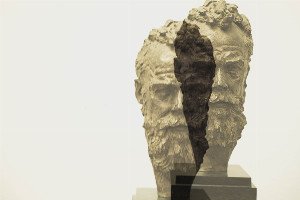Dian Nur Fadhilah, Dian Yuni Pamuji, Sheyra Silvia Siregar
An Analysis of Mandarin Imperative Sentences in the Drama 'The Untamed' Episode 1 by Mo Xiang Tong Xiu
Introduction
An analysis of mandarin imperative sentences in the drama 'the untamed' episode 1 by mo xiang tong xiu. Analyze Mandarin imperative sentences in 'The Untamed' episode 1. This study identifies 94 instances (command, prohibition, request) revealing character emotions & social dynamics.
Abstract
This study aims to analyze the types and functions of imperative sentences found in episode 1 of the Chinese drama The Untamed, adapted from the novel Mo Dao Zu Shi by Mo Xiang Tong Xiu. Using a descriptive qualitative method, the research focuses on identifying imperative forms in the characters' utterances and classifying them into five categories: command, prohibition, request, invitation, and permission. The data were collected through non-participatory observation and documentation, then analyzed using imperative sentence theory in Mandarin. The findings show a total of 94 imperative sentences, with directive imperatives being the most dominant (52 instances), followed by prohibitions (18), invitations (6), requests (6), and indirect imperatives (9). These variations not only reflect the linguistic structure but also reveal the characters’ emotions, social relations, and power dynamics. The study highlights how Mandarin imperative sentences in popular media can serve as a valuable resource in understanding communication strategies, pragmatic functions, and sociocultural context in language use.
Review
This paper, "An Analysis of Mandarin Imperative Sentences in the Drama 'The Untamed' Episode 1," presents a focused descriptive qualitative study examining the types and functions of imperative sentences within a popular Chinese drama. The choice of dataset, episode 1 of 'The Untamed,' offers a rich and contextually relevant source for linguistic analysis, leveraging media that resonates with a broad audience. The clear objective of categorizing imperative forms and exploring their pragmatic functions is well-articulated, promising insights into how power dynamics, social relations, and emotions are conveyed through specific linguistic structures in Mandarin. The methodology, employing non-participatory observation and documentation, is appropriate for this type of linguistic analysis. The identification of 94 imperative sentences, with a detailed breakdown into directive, prohibition, invitation, request, and indirect imperatives, provides solid empirical grounding. The finding that directive imperatives are most dominant, and the subsequent discussion of how these variations reflect character interaction and socio-cultural context, are particularly compelling. One minor point for clarification would be to elaborate on the "indirect imperatives" category, as its theoretical basis within the Mandarin imperative sentence theory used could benefit from further explanation, distinguishing it more clearly from the other directly functional categories. Additionally, the listed category of "permission" was not explicitly found in the results, which could be briefly addressed. Overall, this study makes a valuable contribution to the understanding of Mandarin pragmatics, particularly within the dynamic context of popular media. The analysis effectively demonstrates how specific grammatical structures serve multiple communicative functions beyond mere instruction. The research highlights the potential of using contemporary drama as a linguistic corpus to explore real-world language use and its socio-cultural implications. Future research could expand upon this foundation by comparing imperative usage across multiple episodes or different genres of drama, or by conducting a comparative analysis with imperative forms in other Mandarin-speaking regions, which would further enrich our understanding of these nuanced linguistic phenomena.
Full Text
You need to be logged in to view the full text and Download file of this article - An Analysis of Mandarin Imperative Sentences in the Drama 'The Untamed' Episode 1 by Mo Xiang Tong Xiu from Longda Xiaokan: Journal of Mandarin Learning and Teaching .
Login to View Full Text And DownloadComments
You need to be logged in to post a comment.
Top Blogs by Rating
Phantom Power: Unmasking Your...
By Sciaria
The Unspoken Wisdom: Embracing...
By Sciaria
Beyond Repair Shops: Unlocking...
By Sciaria
Favorite Blog
Your DNA's Ancient Story: Unlo...
By Sciaria
Beyond the Blueprint: Why Your...
By Sciaria
Beyond Silicon: How Living Mat...
By Sciaria




